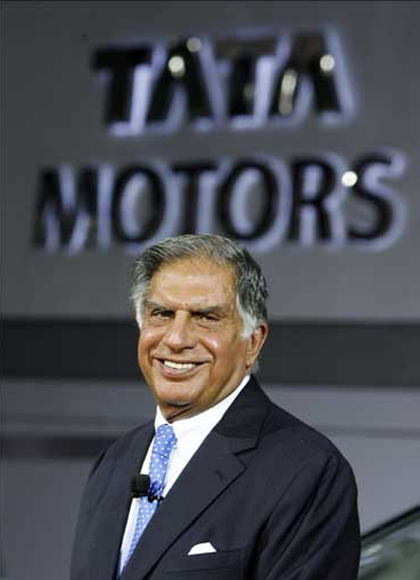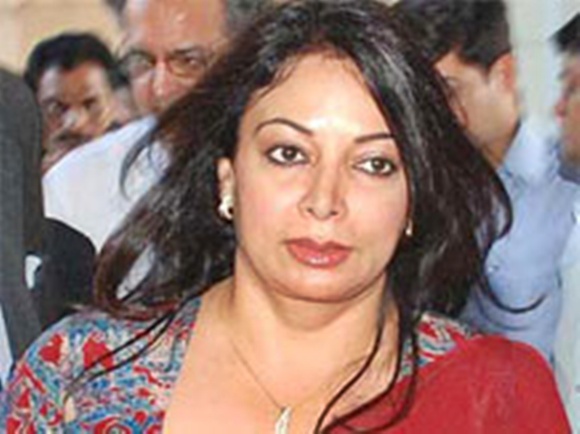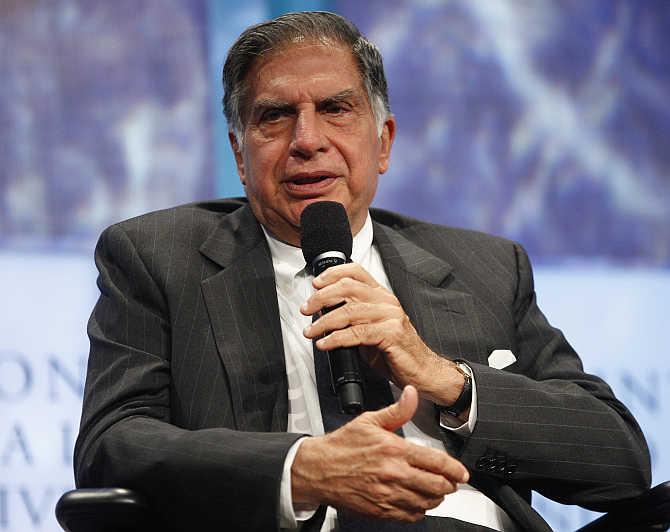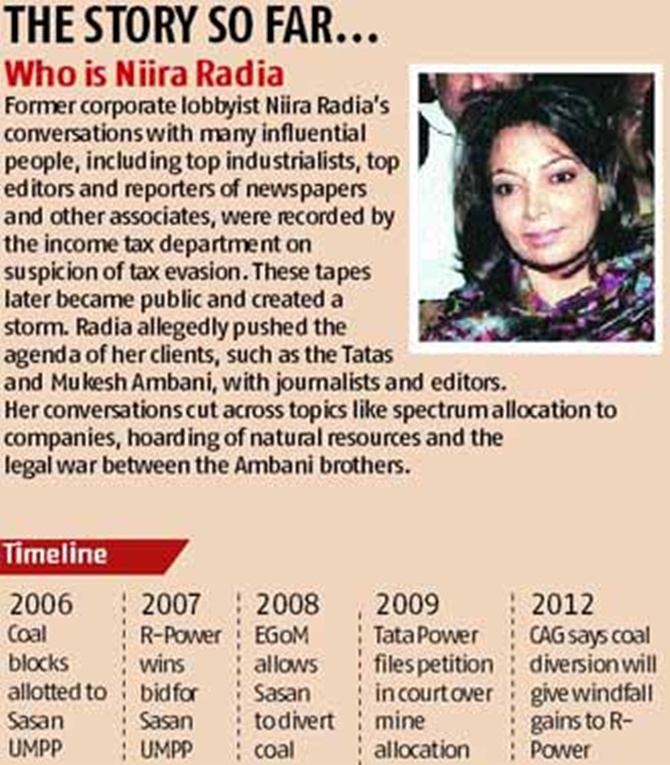 | « Back to article | Print this article |
Radia tapes leaked due to corporate rivalry: Tata to SC
Former Tata Group chairman Ratan Tata on Friday told the Supreme Court that the tapped telephonic conversations between corporate lobbyist Niira Radia and top politicians, bureaucrats and businessmen, including himself, were leaked to the media because of corporate rivalry.
"This order for tapping was passed because of extraneous reasons. If corporate battle had not happened, this would not have come out in public," senior advocate Harish Salve, appearing for Tata, said adding "I do not have any doubt that the original leak happened because of corporate rivalry".
Salve told an apex court bench that Tata Telecommunication itself gets around 10,000 to 15,100 requests from the government every year for interception of calls and questioned the Centre for not finding out who leaked the tapped conversation.
"Tata Telecom itself gets around 10 to 15 thousand requests per year for interception of call. The total number of such requests must be around 60-70 thousand per year for all telecom companies," Salve told the bench headed by Justice G S Singhvi.
Click NEXT to read more...
Radia tapes leaked due to corporate rivalry: Tata to SC
The bench, also comprising justice V Gopala Gowda, said that "in the instant case, recording was done at the instance of the income tax department and at the same time by some service provider at the risk of losing the licence".
Salve submitted there is no proper mechanism to go through tapped conversations to find out the relevant information and destroy those parts which are private in nature. Salve also raised question on the probe agency saying "the investigating agency used the media, which is a very dangerous trend".
"We don't know why it (Radia tape) was leaked and to embarrass whom," he submitted.
"The government should keep the relevant portion (of the tape) with itself but should have destroyed rest of them. It is not allowed to keep the entire tapped conversation. People's right to privacy has to be protected," he said.
Click NEXT to read more...
Radia tapes leaked due to corporate rivalry: Tata to SC
Salve said the review committee is overloaded and it is not possible for it to go through the entire process for all intercepted calls.
"There are many like the present one which have not come into light. Who is looking at all these cases? Are we allowing the dynamite to be used at different times by not destroying the tapped conversation which is of no use for the government authorities"? he said.
He pleaded an inquiry be done by the Centre into the leak which is completely of "exculpating nature" and there is inconsistency in the affidavit filed by the governemnt.
"Government has thrown up its hand. Media and petitioners are not above law. RTI is there and government authority is to decide whether the tapped conversation is to be made public or not. We have now RTI structure to bring transparency," he said while submitting that the tapped conversation be not made public.
"Media has the right to probe public affairs matters and law also protects them to an extent. But publication cannot be done on the basis of mere suspicion. Media must do its own follow-up investigation to prove the authenticity of a gossip before publishing it," he said.
Salve said the media's justifying the publication of the transcripts annexed with the petition and affidavits in the apex court cannot be sustained.
The documents placed in the courts cannot be inferred to be in the public domain. "What I challenge is the assertion made by a news magazine that if something is placed in the Supreme Court, it is in the public domain and there is a right to publish," the senior advocate said.
Click NEXT to read more...
Radia tapes leaked due to corporate rivalry: Tata to SC
At this submission the bench also said "who took the stand that since it (transcript) is a part of the Supreme Court record, it is in public domain and can be published".
"Do they say they got it from the Supreme Court"? the bench said.
Responding to the query, Salve said "nowhere" they said like that. He also said that though the court has ordered a preliminary inquiry by CBI into certain issues arising out of the tapped conversations, it could turn out to be a conversation making out no case.
The conversations were recorded as part of surveillance of Radia's phone on a complaint to the Finance Minister on November 16, 2007 alleging that within a span of nine years she had built up a business empire worth Rs 300 crore (Rs 3 billion).
The government had recorded 180 days of Radia's conversations--first from August 20, 2008 for 60 days and then from October 19 for another 60 days. Later, on May 11, 2009, her phone was again put on surveillance for another 60 days following a fresh order given on May 8.




